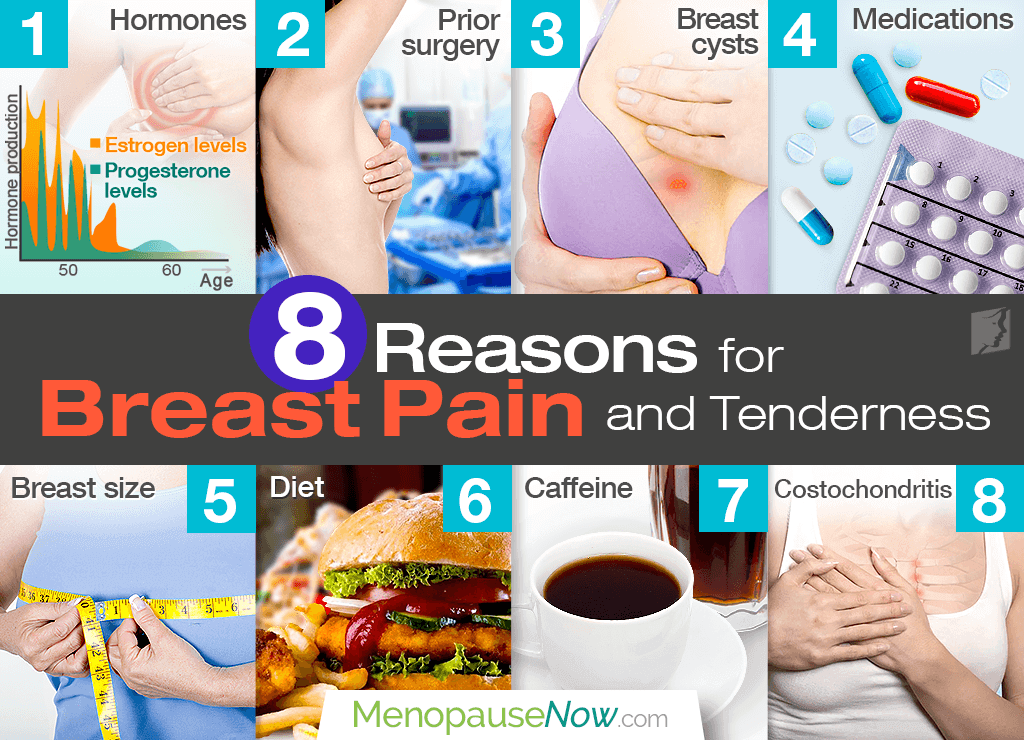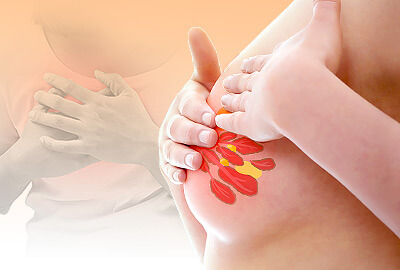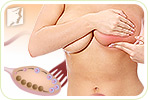Breast pain refers to the general discomfort, tenderness, and soreness in one or both breasts. It affects as many as half of all women throughout their reproductive lives, making it a common complaint.1 However, pinpointing the causes of breast pain and tenderness can be a chore as more than just hormones can be at fault.
Continue reading to discover eight reasons for breast pain and tenderness so that you can continue on your path to finding the right treatment for you.
Hormones
Hormone fluctuations are the primary cause of cyclical breast pain. For reasons widely unknown, variations in levels of the sex hormones estrogen and progesterone often result in breast pain. Women typically experience this during times of hormonal change, like menstruation, pregnancy, and menopause.
Prior Surgery
Previous incisions in or around the breast that haven't properly healed or have formed scars can cause breast pain. Moreover, breast cancer surgery has been found to impair grip strength and shoulder mobility even after healing of the surgical wounds.2
Breast Cysts
Cysts are fluid-filled sacs in the breasts that feel like round lumps. Although they can cause alarm, they are usually benign and typically disappear on their own. If they're causing severe and prolonged pain, they can be surgically removed.
Medications
Some antidepressants and birth control medications can cause breast pain. Always be aware of the potential side effects of the medications you take, and speak with your doctor for an alternative if need be.
Breast Size
Women of all breast sizes can experience breast pain, but women with larger breasts are more susceptible to it. It's important to wear a properly fitted bra during any period of activity to provide optimal support and comfort.
Diet
Diet is believed to play a role in breast pain and tenderness, but more research is needed to solidify this claim. What has been found is that consuming a low-fat and high-complex carbohydrate diet is helpful in relieving breast discomforts.1
Caffeine
Cutting back on caffeine has also been shown beneficial in the fight against breast pain and tenderness.1 Substitute caffeinated tea, coffee, and sodas for fruit-flavored waters, juices, and other decaffeinated options.
Costochondritis
Costochondritis is the inflammation of cartilage in the chest. Although not originating in the breasts, its pain can radiate from the chest to the breasts, causing aches and discomfort.
Conclusions
All in all, breast pain is rarely a sign of breast cancer, but it's still crucial to get regular breast exams just to be sure. If breast pain and tenderness persists or worsens after several days, it may be wise to contact a doctor. For those whose breast pain is indicative of the menopausal transition, natural and effective breast pain treatments are just within reach.
Sources
- Breast Cancer NOW. (2018). Breast pain. Retrieved November 20, 2019, from https://breastcancernow.org/information-support/have-i-got-breast-cancer/benign-breast-conditions/breast-pain
- Cleveland Clinic. (2018). What's Causing Your Breast Pain or Tenderness? 5 Soothing Tips. Retrieved November 20, 2019, from https://health.clevelandclinic.org/whats-causing-your-breast-pain-or-tenderness-5-soothing-tips/
- Mayo Clinic. (2019). Breast pain: Symptoms & causes. Retrieved November 20, 2019, from https://www.mayoclinic.org/diseases-conditions/breast-pain/symptoms-causes/syc-20350423
- National Health Service UK. (2017). Breast pain. Retrieved November 20, 2019, from http://www.nhs.uk/conditions/breastpaincyclical/pages/introduction.aspx
Footnotes:
- Cleveland Clinic. (2014). Breast Pain (Mastalgia). Retrieved November 20, 2019, from https://my.clevelandclinic.org/health/diseases/15469-breast-pain-mastalgia
- Langford, D.J. et al. (2014). Persistent Breast Pain Following Breast Cancer Surgery Is Associated With Persistent Sensory Changes, Pain Interference, And Functional Impairments. Journal of Pain, 15(12), 1227-1237. doi: 10.1016/j.jpain.2014.08.014




